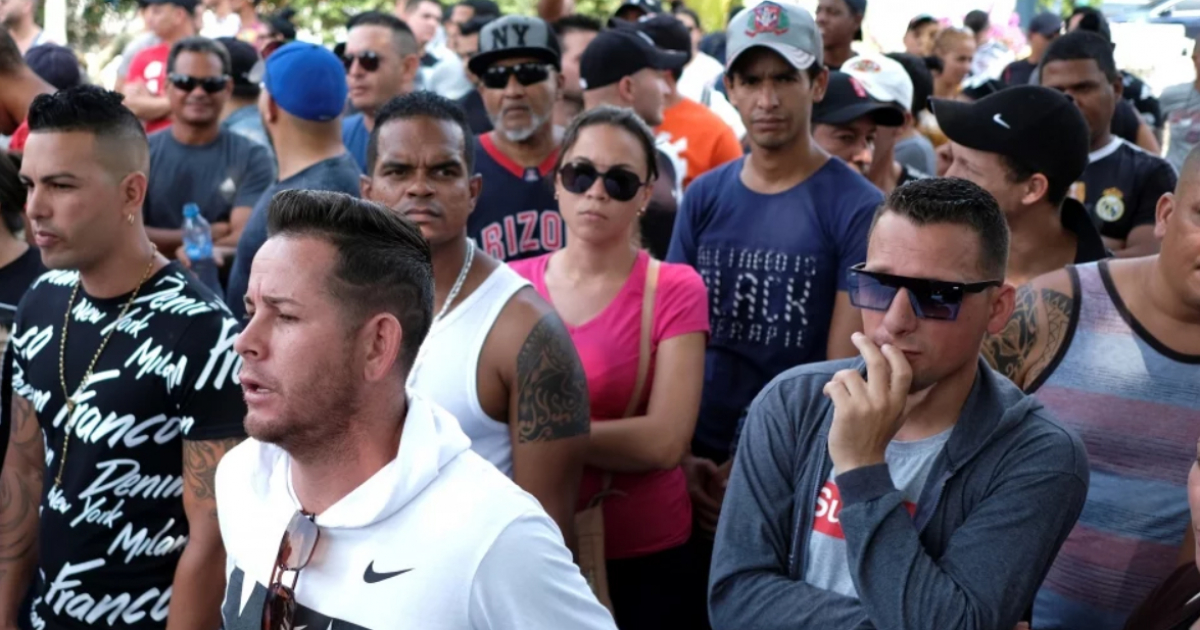
Donald Trump's administration will restrict the granting of work permits to workers to a minimum Immigrants requesting asylum in the United States and receive a parole to stay temporarily in the country.
In a statement alert published this Tuesday, the Department of Citizenship and Immigration (USCIS) established that from now on foreigners admitted to US territory with a request for asylum will not automatically benefit from the right to employment.
Certain aliens may be paroled into the United States under the Immigration and Citizenship Act (INA) for urgent humanitarian reasons or significant public benefit. USCIS has the discretion to grant these aliens employment authorization. Applicants do not have the right to receive a work permit," the document stated.
The federal agency argued that the discretionary granting of employment authorization will evaluate each particular case, taking into account all the factors involved and the totality of the circumstances of each of them.
USCIS will implement guidance for immigration officials to evaluate “positive” and “negative” factors for discretionary work permit adjudication, such as driving while intoxicated (DUI), criminal history, and prior deportations.
The statement said the decision was implemented in “response to the national emergency at the southern border.”
The agency added that "USCIS's adjudication practices" need to be refined and that its officials should receive more guidance in using discretion to grant or deny work permits.
The measure constitutes another twist in President Donald Trump's immigration policy and affects all asylum requests in the United States, including several Cuban applicants.
"In general it is not a regulation that mainly affects Cuban immigrants, although there will be some pending cases that will be harmed," said lawyer Willy Allen.
Allen indicated that the USCIS decision is aimed at all immigrants who managed to enter the United States after presenting their request of "credible fear" before the authorities at a border point, and received a parole to wait for his asylum hearing.
More than 18,000 Cubans have presented their case to immigration officials at the southern border during the current fiscal year, which began last October 1. But since the end of June, an agreement established between the governments of Mexico and the United States allows petitions to be registered and applicants sent back to Mexican territory while they wait for their appointment in immigration court.
In the case of Cubans, it is estimated that some 800 applicants have been returned to border areas with the so-called Migrant Protection Protocol.
The most regular effects can occur in:
- People who managed to enter the United States with a parole while waiting for their asylum case and have not yet received their work permit.
- People who are waiting for a renewal of their work permit and have not concluded their asylum case.
- Beneficiaries of the Deferred Action for Childhood Arrivals (DACA) program, which protects thousands of undocumented immigrants who arrived in the country as children from deportation.
- There were some cases of Cubans who entered with a visit visa and requested political asylum, but their case was not processed or was dismissed.
Special programs for temporary entry while awaiting permanent residence, such as Family Reunification Program for Cubans (CFRP), should not be affected by this regulation.
However, the CFRP has been frozen since October 2017 without accepting new applications, and the Trump administration has put it under a review that could end up canceling it.
The USCIS measure, which could be challenged in court, seeks to close the path to numerous cases of asylum seekers who abandoned their case after obtaining a work permit with a temporary stay in the country.
What do you think?
COMMENTFiled in: